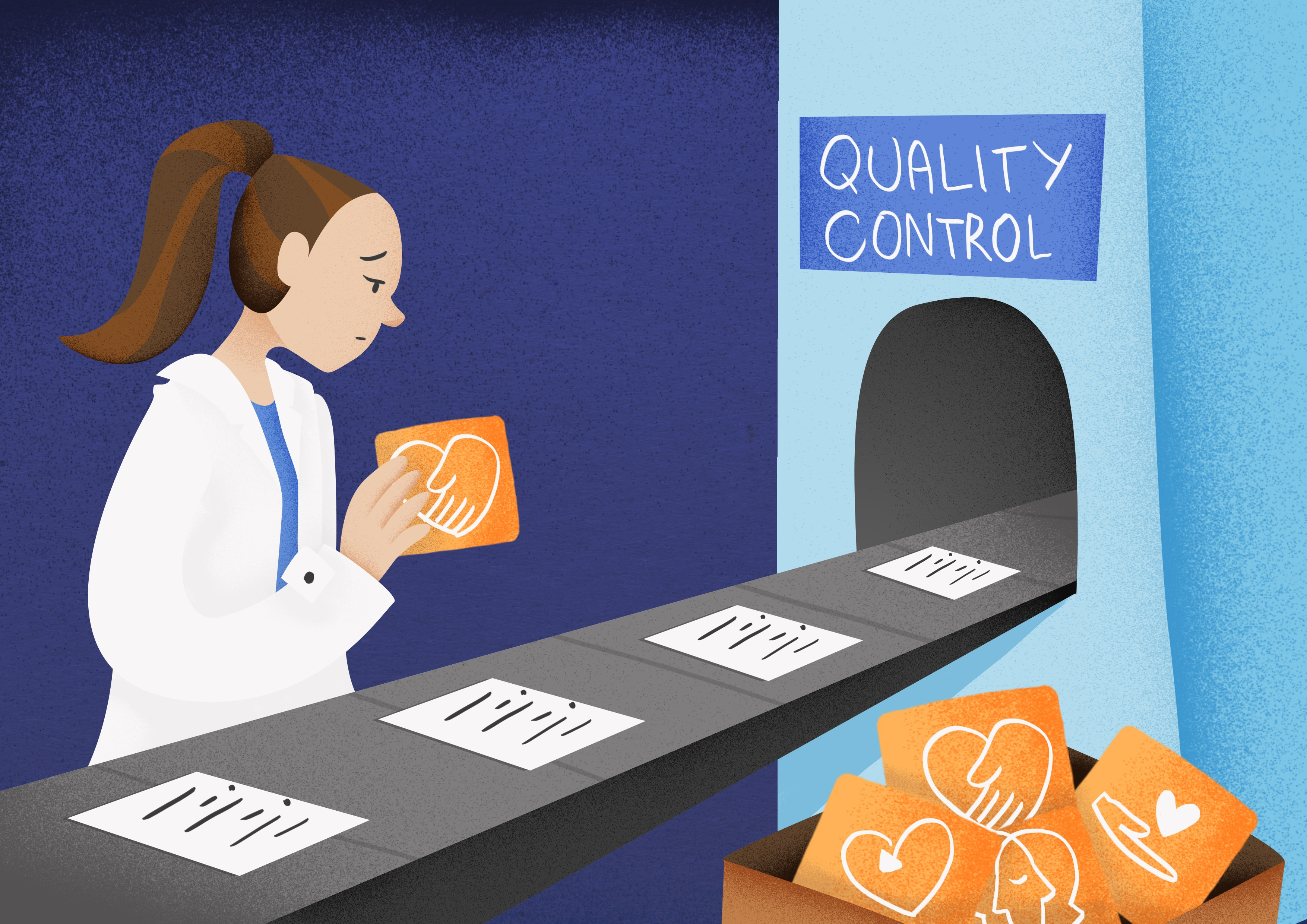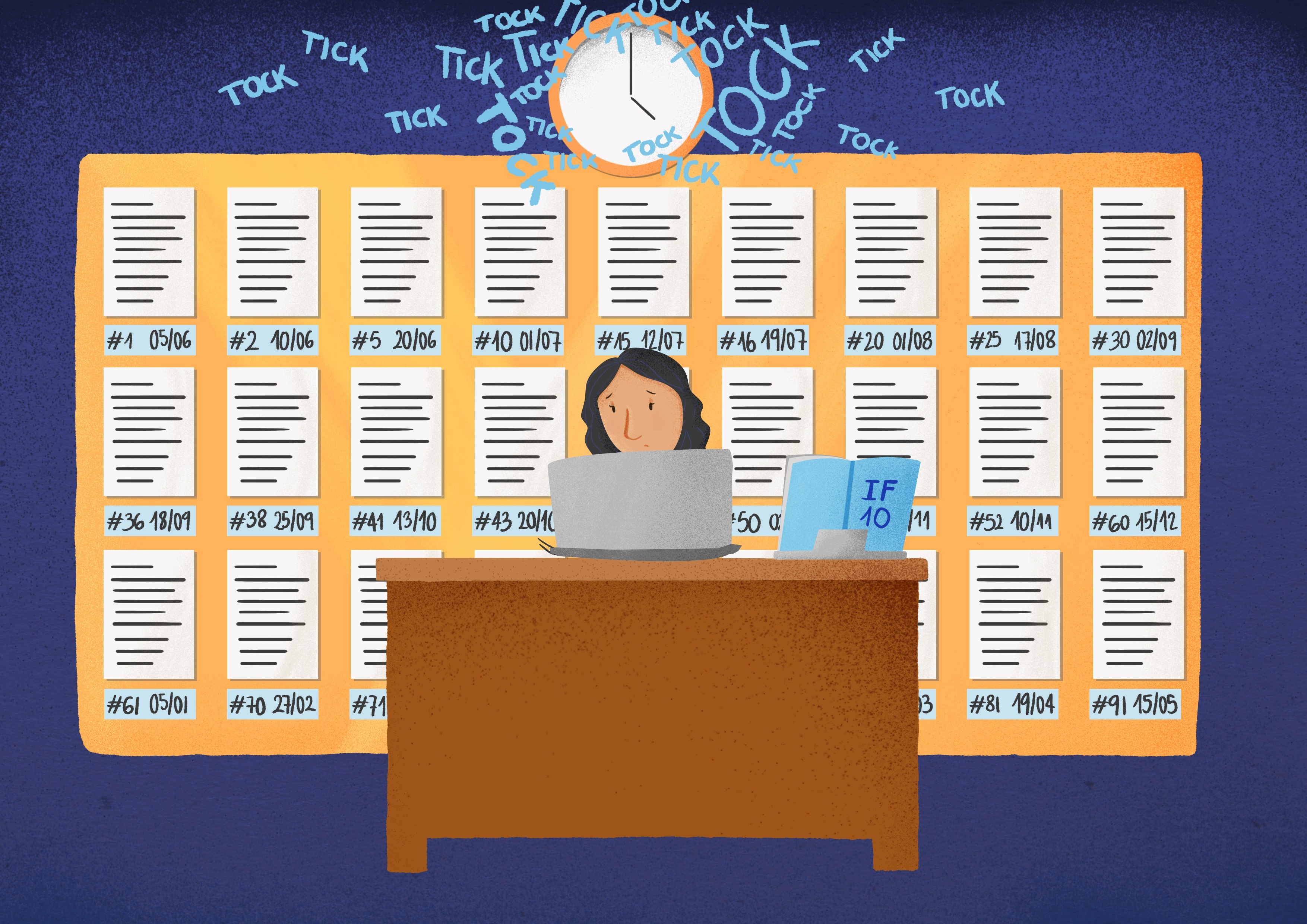The Journey to Publication: Tales of Disillusion (and a Glimmer of Hope)
Published in Social Sciences

This is the tale of three young researchers and their journey in academia.
The first one has just passed her VIVA. She comes from Italy, where she worked as neuropsychologist. She wanted to understand what happened to her patients before they became patients, so that rehabilitating them would be more a science-driven process, rather than a trial-and-error one. So she packed up her life (and her cat) and moved to London.
What I’ve seen in the past four years was very different from what I expected academia to be. Brilliant researchers needing to go through too many compromises, shortcuts, rushed publications, shameless self-promotion, trendy grant applications - to the point that they don’t know whether they are a PI or a PR (bad pun intended). When I saw the finishing line, I thought that it would be my moment; I thought that maybe things weren’t as bittersweet as they seemed from the relative safety of grad school (the “it won’t happen to me” complex).
That glimmer of hope lasted less than the free wine at a conference reception.
Wherever I looked, I was either overqualified or underqualified, despite having a 9-months lecturing experience, 1 publication, 1 paper in press and a couple more being written-up. The majority of the post-doc ads were more or less like this: the applicant needs to be able to code, analyse and run neuroimaging studies, have experience with clinical populations and computational modelling. On the top of the soul-crushing feeling of inadequacy that seeing the word “essential” next to all the above elicited, I started noticing something else. Among the essentials, adverts required that the applicant had at least 1 or 2 publications. Actual publications. I was among the “lucky” ones: given the extra time I gained by taking up the lectureship, I managed, in the 3 official years of my PhD, to publish 1 paper and have another one in press before submitting.
Still, I struggled because I didn’t tick all the boxes.
I took things in my own hands and started writing to every researcher in my field, gave talks in departments, started a network. Now I am employed in a private company as a research scientist, whilst collaborating with academics that are part of that network I created during the worst months of my PhD. The industry gave me the credit academia did not – they did not care about the number of publications. They wanted me and my skills to help them build something meaningful.

The second researcher wasn’t this “lucky”. She is doing amazing community-driven work with clinical populations. She wants to help people with Parkinson’s to improve their quality of life.
Four years into my PhD and no publications (with no pressure from my supervisors), entering the final stage of completing is a bittersweet one. Academia doesn’t particularly build you up in confidence about your own abilities (one has to take a lack of feedback as a metaphorical pat on the back). Though, I cannot deny that as I have progressed through my PhD I have been on a hugely important journey of self-discovery: receiving validation through the wonderful community of people with Parkinson’s, whom I have thoroughly enjoyed working with in research alongside other projects, such as fundraising, to keep our beloved dance for Parkinson’s class running.
Whilst I KNOW (if I really, really think about it) that my knowledge and practical abilities have grown over the years and I have the skills to offer as a post-doc, now that the time has come to look for jobs, seemingly none of my skills can trump the weight of having publications on my side. In fact, many of my skills seem not to be CV relevant (more, extracurricular activities), yet my research certainly wouldn’t have evolved as it has without these. Being able to engage with a clinical population on a personal level and earn their trust, such that when you require an honest opinion about a piece of research they will offer their true viewpoint, isn’t something that can be gained overnight. It's hard to imagine my research without their input and the constant contact I had with them throughout the years; yet, this is the exception rather than the norm for many academics at the top of their game. So, now that the end of the PhD is in sight, I have to decide whether I succumb to publishing something (and risk the quality of my other work, or of equal issue, churn out a sub-par article) or hope that I can find a seemingly elusive role that values other achievements equally to publications.

The third one has brilliantly passed her VIVA in May 2019. She now works as a research tutor and a research consultant.
My academic career started with a publication in Current Biology, back when I was doing my MSc in Cognitive Neuroscience. Since then, and throughout my PhD, I have had two more first-author publications, so I do consider myself one of the (few) lucky ones. However, mid-way through my PhD I realised that what matters is not only to do good research and publish it, but publish at a journal with a high Impact Factor. While this is a long-established metric for evaluating the relative importance of a journal within its field, it is also quite controversial, having given rise to numerous debates. However, when it comes to job and grant applications, it seems that reviewers tend to focus on the Impact Factor of the journals the applicant has published in, rather than the actual research. On top of that, targeting a specific journal with a particularly high Impact Factor can cause significant delays – delays that may cost someone else publishing something similar before you do. Last year, I completed a study with some interesting results. However, I want to aim “high”, doing my research justice. Yet, thinking about it I wonder if doing it justice would be to publish at a journal with a lower IF now, rather than wait until I see my research published by someone else.
The Impact Factor is a number, which may be flawed or not, yet it has a huge impact on science nowadays and repercussions on someone’s career. If we assume that the Impact Factor bears limitations for the evaluation of a journal, imagine how flawed it is for evaluating researchers.

These stories will most likely meet a happy ending. However, all the above is not only disheartening, but puts an unnecessary pressure to publish that often results in pushing away young researchers. If we have to submit at all costs, it becomes necessary to publish as fast as possible. No matter the cost for science, we have to publish something somewhere - and somewhere that is good enough because, you know, institutions are often evaluated (and funded) on this basis.
A good study requires years of work, failure, analysis of what went wrong and, of course, time. And young researchers cannot afford the luxury of time. This not only leads to an overall decrease in quality of academic work – it also teaches us that science is becoming a product exactly like any other. The numbers matter more than ideas, data, scientific rigour – the ethical and human dimension of our “mission” as researchers is losing grip with its own principles. Open science, pre-registration and the advent of pre-prints are hopefully the beginning of a deeper revolution.



Please sign in or register for FREE
If you are a registered user on Research Communities by Springer Nature, please sign in